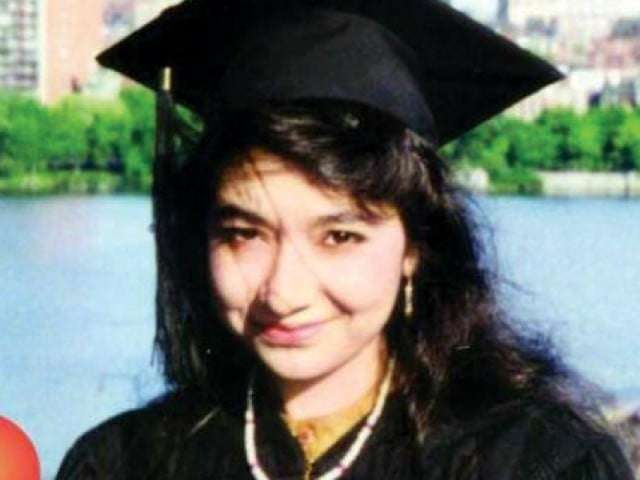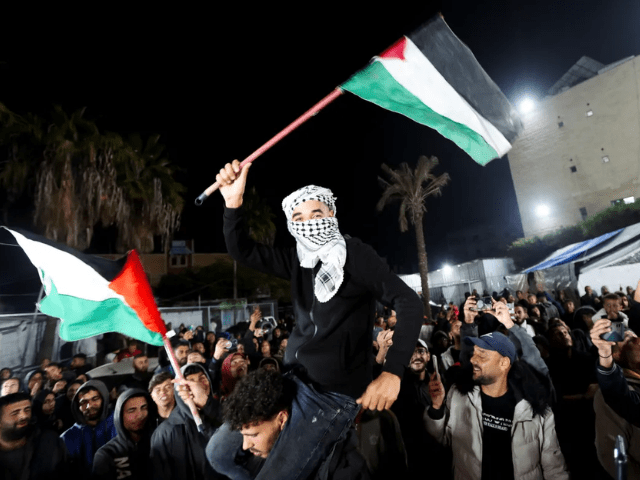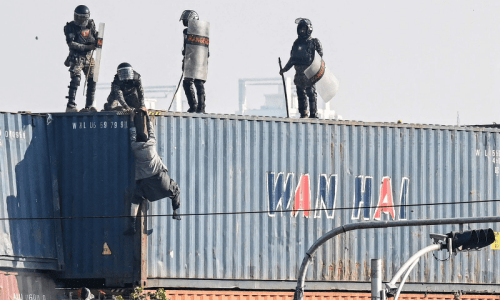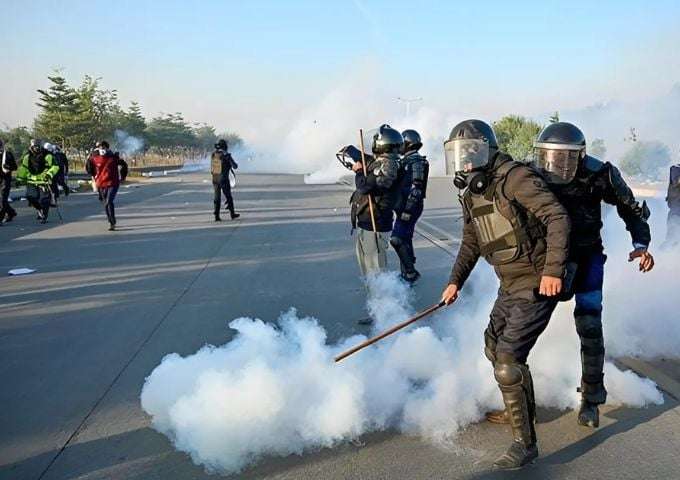Introduction: Pakistan’s Continued Efforts for Dr. Aafia Siddiqui’s Release
In a significant development, a Pakistani delegation consisting of members of parliament and a psychiatrist visited Dr. Aafia Siddiqui in her high-security prison facility in Texas. This visit, which lasted for nearly three hours, was conducted under the instructions of Prime Minister Shehbaz Sharif and is part of Pakistan’s ongoing efforts to secure Dr. Siddiqui’s release.
The delegation’s visit highlights Pakistan’s commitment to raising awareness about Dr. Siddiqui’s case and advocating for her release. The delegation not only met with Dr. Siddiqui but also held crucial discussions with US officials, appealing for her release on humanitarian grounds before the end of President Joe Biden’s term in January 2025.
Who is Dr. Aafia Siddiqui?
Background and Early Life
Dr. Aafia Siddiqui, a Pakistani neuroscientist, was once regarded as a promising academic figure. She completed her education in the United States, where she earned a PhD in neuroscience from Brandeis University in Massachusetts. However, her story took a dramatic turn when she was caught in the war on terror that followed the September 11 attacks.
Siddiqui was accused of having ties to Al-Qaeda, and her disappearance with her three children in 2003 led to widespread speculation about her role in the organization. This led to her being dubbed as the “Lady Al-Qaeda” in media reports.
The Case Against Dr. Aafia Siddiqui
In 2008, Dr. Siddiqui was arrested in Afghanistan under controversial circumstances. She was allegedly found in possession of sodium cyanide and documents related to plans for attacks on US targets. During her interrogation, it was reported that Siddiqui grabbed a US soldier’s rifle and attempted to shoot US agents. This incident resulted in her being shot and seriously injured by US personnel.
Despite the charges, many human rights advocates have raised concerns about the treatment Dr. Siddiqui received during her detention. There were claims of severe mistreatment and torture, which intensified the controversy surrounding her case.
Pakistani Delegation’s Visit: A Critical Step in Advocacy
The Meeting with Dr. Aafia Siddiqui
The Pakistani delegation‘s visit to Dr. Aafia Siddiqui in the Federal Medical Center (FMC) in Fort Worth, Texas, represents a significant diplomatic effort. The delegation spent nearly three hours with Dr. Siddiqui, listening to her firsthand account of the challenges she faces in prison. Dr. Siddiqui shared her experiences, describing the harsh conditions and psychological toll of her prolonged incarceration.
The delegation’s visit also aimed to show support and express solidarity with Dr. Siddiqui, reaffirming Pakistan’s commitment to her case. Aafia’s family, particularly her mother, has been vocal in seeking her release, and this visit serves as a demonstration of Pakistan’s ongoing diplomatic and humanitarian efforts.
Humanitarian Appeal to US Authorities
The meeting was not only symbolic but also served as an important platform for the delegation to press for Dr. Siddiqui’s release on humanitarian grounds. The delegation, including members of the Pakistani Parliament, also met with US officials, including members of Congress and representatives from the State Department.
They raised their concerns over Dr. Siddiqui’s treatment in prison and reiterated their request for her early release due to her deteriorating health and the harsh conditions of her imprisonment. Prime Minister Shehbaz Sharif has repeatedly called for the US government to reconsider the case, urging a more humane approach to her incarceration.
Appealing to President Biden
As part of their efforts, the delegation directly appealed to President Joe Biden, urging him to grant Dr. Aafia Siddiqui’s release before his presidential term ends in January 2025. The delegation emphasized that the repeated calls for Dr. Siddiqui’s release are based not on political considerations but on humanitarian grounds. They expressed hope that the US would consider her case with empathy and fairness.
The Legal and Humanitarian Aspects of Dr. Siddiqui’s Case
Conviction and Sentence
Dr. Aafia Siddiqui was convicted in 2010 for the attempted murder of US personnel while in custody in Afghanistan. She was sentenced to an 86-year prison term, a sentence that has sparked widespread criticism, particularly in Pakistan, where many believe that the charges against her were exaggerated or unfounded.
Despite the serious allegations, Dr. Siddiqui was never charged with direct involvement in terrorism, and this has led to questions about the fairness of her trial. International human rights organizations have raised concerns about the lack of evidence in her case and the conditions under which her trial was conducted.
Ongoing Campaign for Her Release
Pakistan has consistently advocated for Dr. Siddiqui’s release on the grounds of human rights violations and inhumane treatment. Several appeals have been made to various international bodies, including the United Nations and human rights organizations, urging the US government to re-evaluate her case and release her on humanitarian grounds.
Dr. Aafia Siddiqui’s Current Situation in Prison
Dr. Siddiqui is currently incarcerated at the Federal Medical Center (FMC) in Fort Worth, Texas. The FMC Fort Worth is a high-security prison that houses inmates requiring special medical care. Although the conditions at FMC are less severe than other facilities, Dr. Siddiqui’s continued detention in the US has raised concerns, especially considering her health status and the lack of a clear legal path forward for her release.
She has reportedly shown signs of mental distress and health complications, which have worsened over the years. Her supporters have urged the US government to consider her mental and physical health when making decisions about her future.
What’s Next for Dr. Aafia Siddiqui?
The visit by the Pakistani delegation has reinvigorated calls for Dr. Siddiqui’s immediate release. The delegation’s diplomatic efforts, coupled with the public support for her case, may exert additional pressure on US authorities to review her circumstances.
If the US government chooses to act, Dr. Siddiqui’s release could set an important precedent for cases of alleged mistreatment and human rights violations in US detention facilities. However, it remains unclear how the Biden administration will respond to these calls.
FAQs
1. What is Dr. Aafia Siddiqui’s case about?
Dr. Aafia Siddiqui was convicted in 2010 for attempting to murder US personnel while in custody in Afghanistan. Despite the severity of her sentence, there have been widespread concerns over the fairness of her trial and the mistreatment she suffered during her detention.
2. Why is Pakistan advocating for Dr. Siddiqui’s release?
Pakistan has been advocating for Dr. Siddiqui’s release on humanitarian grounds due to her deteriorating health and the inhumane conditions she has endured in prison. Pakistan believes that the charges against her were politically motivated.
3. What did the Pakistani delegation discuss during their visit to Dr. Siddiqui?
The delegation met Dr. Siddiqui to discuss the challenges she faces in prison. They also presented a humanitarian appeal to the US government, urging the release of Dr. Siddiqui before the end of President Biden’s term in January 2025.
4. What is the status of Dr. Siddiqui’s health in prison?
Dr. Siddiqui’s health has reportedly deteriorated during her incarceration. She has shown signs of both mental distress and physical ailments, which her supporters claim are a result of the mistreatment she experienced.
5. How has the US government responded to calls for Dr. Siddiqui’s release?
The US government has not yet responded positively to calls for Dr. Siddiqui’s release. However, human rights organizations and Pakistani officials continue to push for her release on humanitarian grounds.
Conclusion: The Future of Dr. Aafia Siddiqui’s Case
The Pakistani delegation’s visit to Dr. Aafia Siddiqui is an important step in the ongoing diplomatic efforts to secure her release. As the world watches closely, the question remains: will the US government take action to release Dr. Siddiqui before the end of President Biden’s term? The resolution of her case could have profound implications for human rights and international diplomacy.



